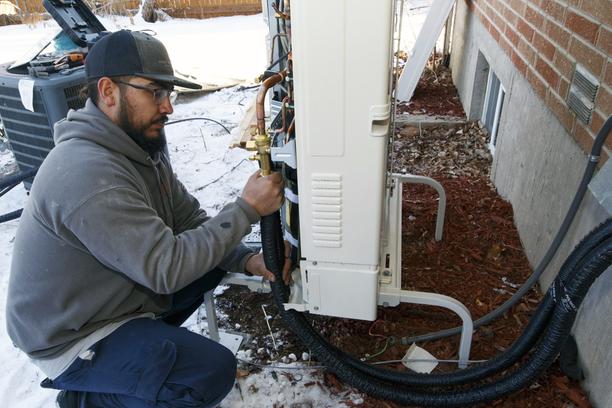Propane-Powered Heat Pumps: A Greener Way to Heat Your Home

In a world where decarbonizing various sectors of the economy is a pressing concern, one tricky challenge remains: heating our homes and businesses. In the European Union (EU), a significant portion of heating relies on burning oil or natural gas, contributing to approximately 12% of the bloc’s greenhouse gas emissions.
One potential solution on the horizon is heat pumps. These devices work like reverse refrigerators, extracting heat from the environment, concentrating it, and channeling it into buildings. The EU aims to replace a substantial portion of gas and oil boilers in residential buildings with heat pumps by 2030, potentially resulting in a 28% reduction in residential emissions from oil and gas. This figure could grow further as more electricity powering these pumps comes from low-carbon sources.
However, ambitious targets come with their challenges. Heat pumps are often more expensive than traditional boilers, costing up to two or three times as much. They also work best in new, well-insulated buildings, posing a challenge for retrofitting older structures. Moreover, some heat pumps use environmentally harmful gases, which European legislators are moving to ban.
One solution gaining traction is propane-powered heat pumps. While slightly more potent than carbon dioxide regarding global warming, propane is significantly less harmful than other refrigerants used in heat pumps. However, propane’s flammability presents challenges, leading to specific safety regulations for its use in heat pumps.
Nevertheless, some manufacturers have already launched propane-filled heat pumps, particularly large “monoblock” systems designed for outdoor installation. These systems offer eco-friendly benefits and the capacity to produce high-temperature water akin to gas boilers, potentially saving on additional heating system upgrades.
Researchers are also working on split systems that can operate with minimal propane. Redesigning key components and optimizing the system’s efficiency can reduce the required amount of propane, making it possible to replace gas boilers in flats with safer, eco-friendly heat pumps.
If these innovations prove successful, heat pumps could become a greener and more accessible solution for both new and older properties. This advancement may ease the debates surrounding their adoption and contribute to a more sustainable future in heating.
















